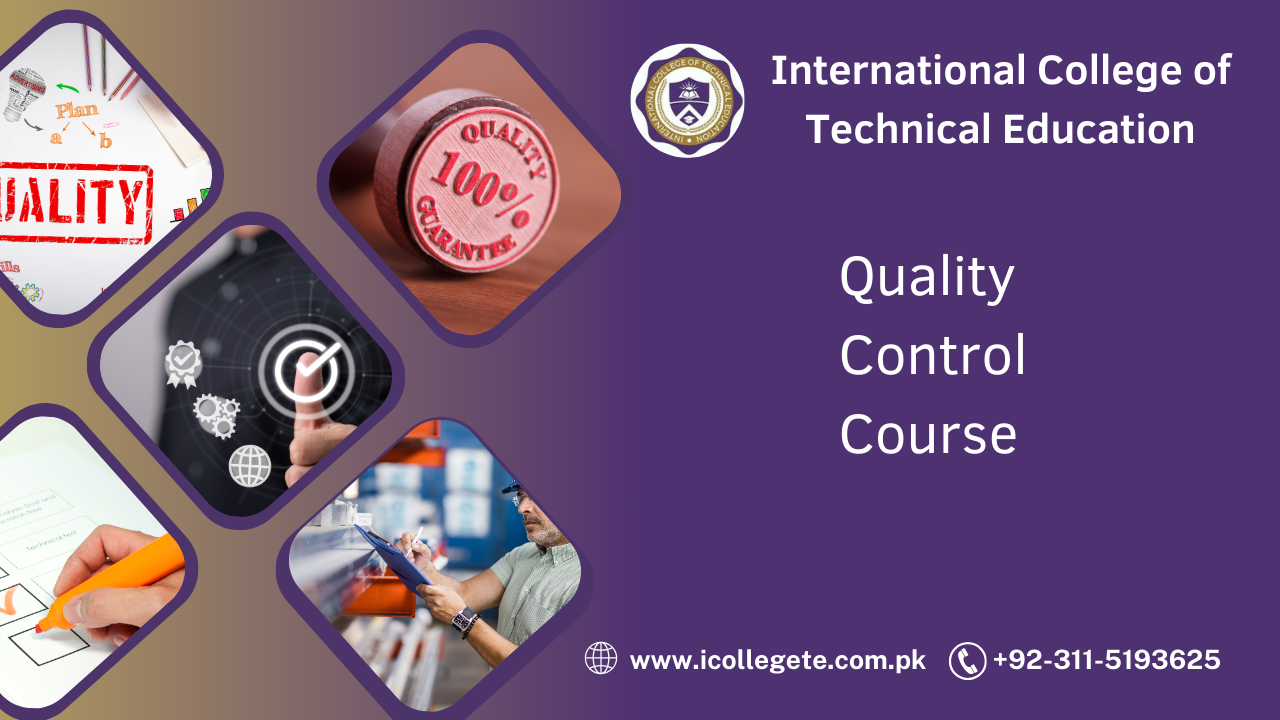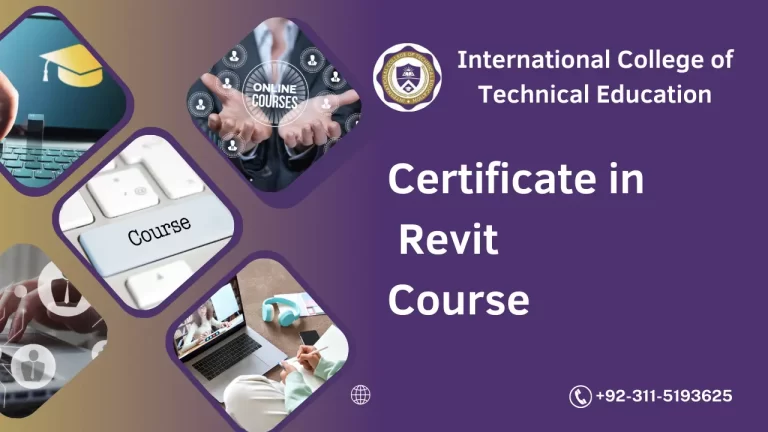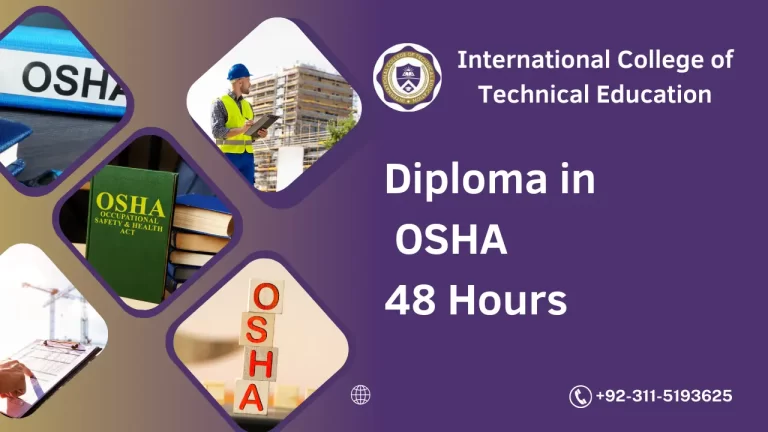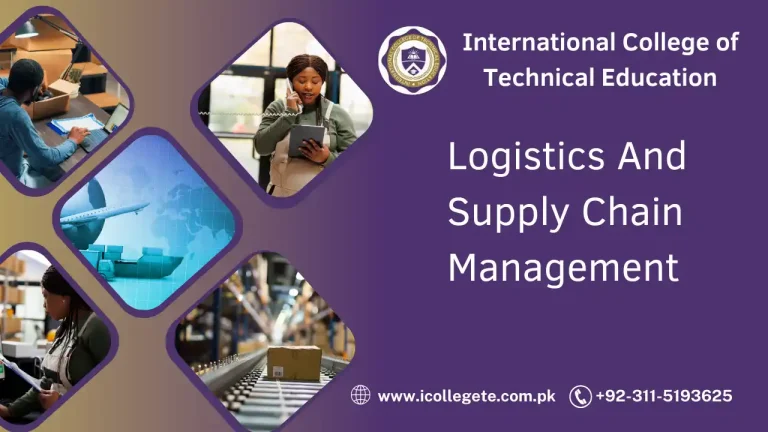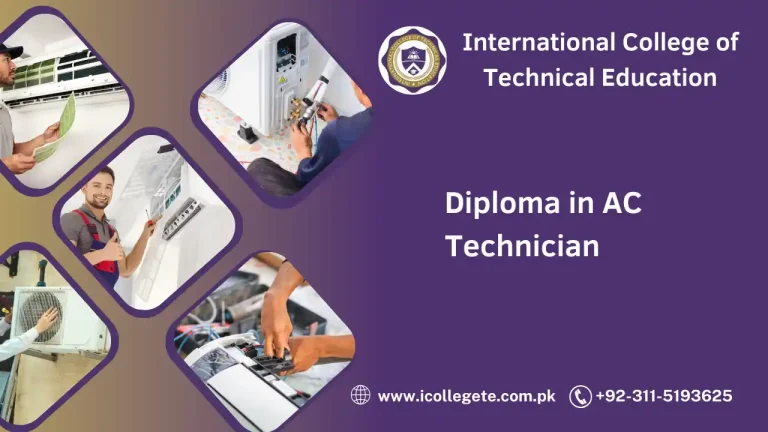In today’s competitive and ever-evolving industrial landscape, ensuring product quality and maintaining high standards is more crucial than ever. This is where a specialized Quality Control (QC) course comes into play. In Islamabad, a number of educational institutions offer comprehensive QC courses, which equip professionals with the skills and knowledge necessary to manage and improve quality control processes.
The Quality Control course in Islamabad is designed to teach individuals how to maintain the highest standards of quality in various industries, including manufacturing, pharmaceuticals, food production, and technology. The course covers key principles, methods, tools, and techniques used to monitor and improve quality at different stages of production. Participants will gain hands-on experience with quality control systems, statistical methods, and industry-specific practices, making them highly employable and efficient in their roles.
Course Overview
The course provides a blend of theoretical knowledge and practical applications. It introduces students to the essentials of quality control processes, measurement techniques, and the tools needed to ensure that products meet the required standards. You will learn how to identify problems within a production line, apply corrective actions, and implement quality management systems (QMS). Moreover, the course includes real-life case studies and examples from various industries, enhancing the learning experience.
Key Topics Covered:
- Introduction to Quality Control: Understanding the importance of quality, key terms, and principles.
- Quality Standards & Regulations: Overview of ISO standards, Six Sigma, and other international quality frameworks.
- Quality Control Tools & Techniques: Statistical Process Control (SPC), Control Charts, Pareto Analysis, and more.
- Inspection Methods: Visual inspections, automated inspections, and sampling methods.
- Root Cause Analysis: Identifying and resolving underlying issues in quality problems.
- Documentation & Reporting: Creating reports, documenting findings, and communicating results to stakeholders.
- Quality Improvement: Techniques for continuous improvement, including Lean principles and Total Quality Management (TQM).
Study Units
The course is broken down into manageable study units to ensure a thorough understanding of each component of quality control:
- Introduction to Quality Control – Understanding QC’s role across various industries.
- Fundamentals of Quality Management Systems – Exploring global standards like ISO 9001 and their application.
- Statistical Tools and Methods – Key tools such as histograms, Pareto charts, and fishbone diagrams.
- Quality Control in Manufacturing – Ensuring quality in the production process.
- Root Cause Analysis and Problem Solving – Identifying issues and developing corrective actions.
- Inspection and Testing Techniques – Methods for inspecting products and systems.
- Continuous Quality Improvement – Focusing on ongoing improvement strategies in industries.
Learning Outcomes
Upon completion of the course, participants will be able to:
- Understand the fundamental principles and practices of quality control.
- Implement quality standards, including ISO and Six Sigma, effectively within their work environment.
- Apply quality control tools and statistical methods to monitor and improve processes.
- Conduct root cause analysis and solve quality-related problems efficiently.
- Create and maintain accurate quality documentation and reporting systems.
- Develop strategies for continuous improvement in quality control processes.
- Work confidently with quality assurance teams and managers to ensure high product standards.
Course Benefits
Enrolling in a Quality Control course in Islamabad offers a wide range of benefits, both personally and professionally. These include:
- Skill Development: Mastering key quality control tools and techniques used across industries.
- Career Advancement: Gaining qualifications that make you stand out in competitive job markets.
- Industry Relevance: Acquiring up-to-date knowledge of industry standards and best practices.
- Improved Job Performance: Enhancing your efficiency and effectiveness in quality control roles.
- Networking Opportunities: Connecting with industry experts, instructors, and fellow students to expand your professional network.
- Certification: Earning a certificate that demonstrates your expertise in quality control and adds value to your resume.
Who is This Course For?
This course is ideal for individuals who are involved in or aspiring to work in quality control, quality assurance, or process management roles. It is particularly beneficial for:
- Quality Control Inspectors and Technicians: Those who wish to improve their skill set and understanding of quality control.
- Engineers and Technologists: Professionals who want to specialize in quality assurance within manufacturing or technical fields.
- Managers and Supervisors: Individuals responsible for overseeing quality management systems or ensuring compliance with industry standards.
- Graduates and Career Changers: Anyone looking to break into the field of quality control, regardless of their educational background.
Future Progression for this Course
Completing the Quality Control course opens the door to various career opportunities and future academic paths. Some potential progressions include:
- Advanced Quality Management Certification: Pursue certifications like Six Sigma Green/Black Belt, ISO 9001 Lead Auditor, or other advanced quality management courses.
- Quality Assurance Management: Move into higher-level managerial roles, such as Quality Assurance Manager or Director of Quality Control.
- Specialization in Specific Industries: Focus on particular sectors, such as pharmaceuticals, food production, or manufacturing, and specialize in quality control within that field.
- Research and Development: Transition into roles focused on R&D, where quality control is integral to product development and testing.
- Consulting: Use your expertise to advise businesses on best practices for quality control and improvement.
By gaining expertise through this course, individuals can position themselves for long-term career success and contribute meaningfully to the continuous improvement of quality processes in various industries.
In conclusion, a Quality Control course in Islamabad is an excellent opportunity for anyone seeking to advance their career in quality management, manufacturing, or process improvement. The course provides the skills, knowledge, and practical tools needed to excel in quality control roles, opening doors to numerous career opportunities in a wide range of industries. With the increasing demand for quality-conscious professionals, enrolling in this course is a step toward achieving both personal and professional growth.

